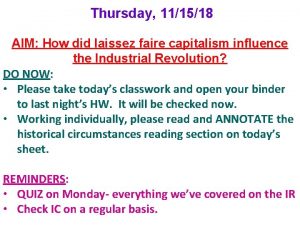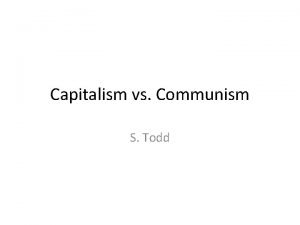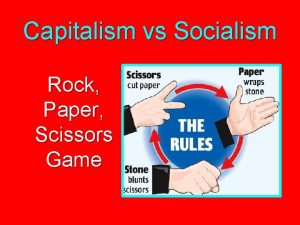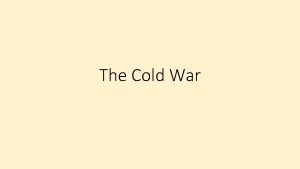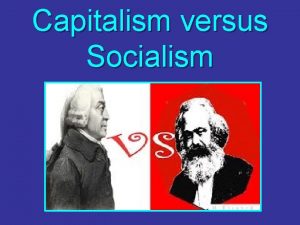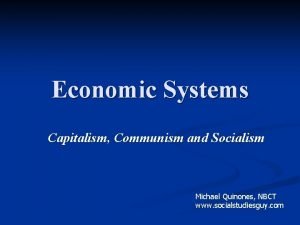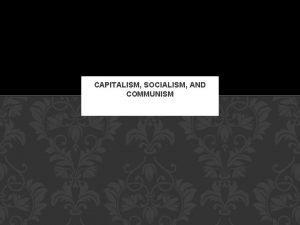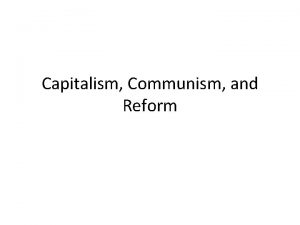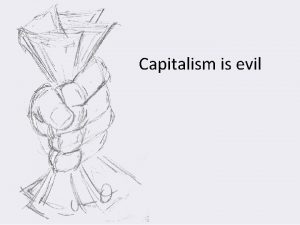Industrial Age Economics Capitalism vs Communism Laissez FaireCapitalism






- Slides: 6

Industrial Age Economics Capitalism vs. Communism

Laissez Faire/Capitalism � Early 1800’s middle class business leaders embraced a laissez-faire or “hands-off” approach � Adam Smith=Main advocate for laissez-faire economics � Wrote Wealth of Nations � Believed a free market-an unregulated exchange of goods and services-would best serve everyone � Supply and demand would regulate economy � Believed it would produce more goods at lower prices -making them affordable for all � This would lead to a growing economy which would encourage capitalists to reinvest profits in new ventures. � Industrial Revolution-show support of this

Laissez-Faire/Capitalism � Wealth will bring its own checks and balances basis of capitalist economy � Laissez-Faire thinkers believed best cure for poverty was an unrestricted free market with NO government intervention � Believed that the “unrestricted laws of the free market” was best cure and that individuals should be left to improve their lot through thrift, hard work, and limiting the size of their families

3 Major Components of Capitalism � 1. Free Market � 2. Competition-supply and demand � 3. Leads to unequal distribution of wealth

Communism � The woes of the Industrial Revolution such as child labor leads to Marx writing the Communist Manifesto �A revolutionary book in where he presented his ideas � Believed that there was an inevitable struggle between social classes that would lead to the creation of a classless society where all means of production would be owned by the community � Believed economics was driving force in history

Communism Cont. � Argued the class history was between the “haves” and the “have nots” � Proletariat-urban working class vs. Bourgeoisie-factory owning-middle class � According to Marx-workers must revolt bloodily against the industry owners � Believed the proletariat would be triumphant and the workers would take control of the means of production and set up a classlesscommunist society.
